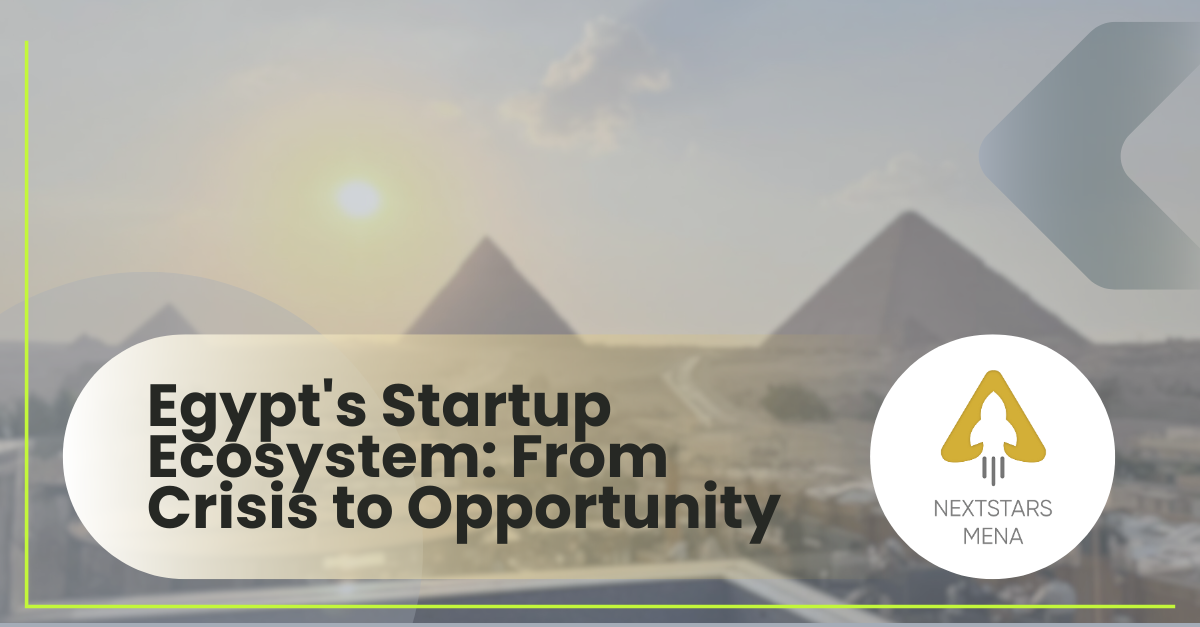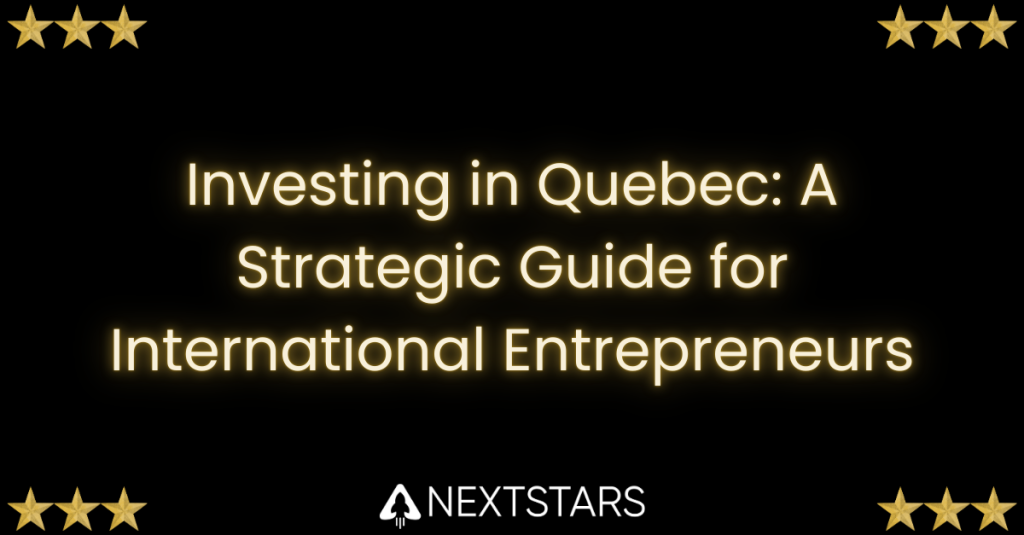Egypt’s startup ecosystem faces severe economic headwinds—the Egyptian pound plunged from 15 to 50 per USD in two years, inflation peaked at 37.3%, and foreign exchange shortages nearly paralyzed imports—yet this turmoil has created massive opportunities for startups solving real problems.
The ecosystem produced its first unicorn (MNT-Halan at $1B+), executed Africa’s largest tech merger (MaxAB-Wasoko), and saw startups expand aggressively across MENA markets despite an 80% funding decline in H1 2024. With 74.8% banking penetration (up from 12% in 2014), a $60 billion import substitution opportunity, and 112 million people creating the largest market in MENA, Egypt offers exceptional potential for founders who can navigate volatility while building for the country’s unique structural challenges.
Economic Crisis Creates Structural Market Gaps
Egypt’s economy experienced severe shocks between 2022-2024 that fundamentally reshaped the business environment.
The Currency Collapse
The Egyptian pound collapsed from ~15 EGP/USD in March 2022 to 48-50 EGP/USD by March 2024—a 70% devaluation culminating in a single-day 38% crash on March 6, 2024. Before converging, the parallel market hit 70 EGP/USD, creating a 100%+ premium over official rates. This currency crisis effectively halved the purchasing power of Egyptian consumers and startup valuations denominated in dollars.
Inflation and Import Challenges
Inflation accompanied the currency shock, peaking at 37.3% in July-September 2023 with food inflation reaching 68.2%. By September 2025, headline inflation had declined to 11.7%, but businesses endured 18+ months of extreme price instability. Import costs doubled for dollar-denominated goods, forcing many startups to relocate headquarters to GCC countries or seek international revenues as survival strategies.
Foreign Exchange Crisis
The foreign exchange shortage became existential for businesses. Egypt’s foreign reserves dropped from $45.4 billion (2019) to $35 billion (September 2023)—just 4.5 months of import coverage. Commercial banks’ net foreign assets reached a record deficit of -$17.1 billion by June 2023.
Banks refused dollar withdrawals, imposed $100 daily limits on individuals, and delayed letters of credit for months. Import operations nearly stopped between March-June 2022 due to Central Bank restrictions. Drug factories operated at 60% capacity due to raw material shortages, while retailers like Starbucks and The Body Shop closed outlets unable to source inventory.
The crisis resolved partially in March 2024 through a $35 billion UAE investment (Ras El-Hikma project) and IMF program expansion from $3 billion to $8 billion. The pound was floated, eliminating the parallel market by April 2024, but the damage to business confidence and startup valuations persisted.
Navigating the Regulatory Landscape
Bureaucracy Improvements Mask Deeper Complexity
Egypt made significant progress reducing bureaucratic friction: business registration time dropped from 42 days to 11 days, and industrial licensing fell from 320 days to 28 days (91% reduction). Yet startups still face labyrinthine regulations that create friction at every step.
Import/Export Regulations
Import/export regulations remain particularly burdensome. Decree 43/2016 requires foreign manufacturers to pre-register products across 10+ categories (textiles, electronics, building materials, toys, furniture) before shipment. Customs clearance averages 8-9 days but extends to 20+ days when requiring GOEIC (General Organization for Export and Import Control) approval.
All documents must be legalized through local chambers of commerce, US State Department, Egyptian Embassy, then translated to Arabic—a process costing thousands of dollars per shipment.
Challenges Remain
Egypt’s World Bank Doing Business rank of 120 out of 190 economies (2019) reflects persistent challenges:
- Resolving commercial disputes through courts takes 1,000+ days (versus 622 days MENA average)
- Importing costs $1,000 per shipment (5x the $269 MENA average)
- High tariffs of 40-60% on products competing with Egyptian manufacturers
- Non-transparent SPS measures and zero-tolerance policies on agricultural imports
Foreign Ownership Restrictions
Foreign ownership restrictions limit opportunities:
- Construction and transport services cap foreign equity at 49%
- Foreign employees cannot exceed 10% of workforce (25% in free zones)
- Computer services require 60% of top management to be Egyptian after three years
These regulations, while gradually improving, still impose significant compliance costs on startups seeking to scale.
Infrastructure: Challenges and Opportunities
Physical Infrastructure Deficits
Egypt’s physical infrastructure lags despite massive government investment. Only 30% of roads meet international standards, yet 94% of inland freight travels by road. The network remains congested and poorly maintained, contributing to delivery costs averaging $5 per package—among the highest in the region and representing 25% of total e-commerce expenses.
Egypt’s 48 ports (15 Mediterranean, 33 Red Sea) suffer from overcrowding and inadequate facilities, creating delays that ripple through supply chains.
Payment Infrastructure Transformation
Payment infrastructure improved dramatically but still creates friction. Banking penetration surged from 12-14% in 2014 to 74.8% by December 2024—a 204% growth rate and one of Egypt’s most impressive transformation stories.
Key achievements:
- Women’s financial inclusion reached 68.8% (23.3 million women), representing 295% growth from 2016
- Government deployed 100,000 additional POS machines
- Expanded financial access points to 1,214 per 100,000 citizens (107% expansion from 2020-2022)
Despite this progress, Egypt remains a cash-based economy with cash transactions dominating even among bank account holders. Cultural preference for cash over digital payments, lack of trust in digital platforms, limited financial literacy, and sparse last-mile payment infrastructure in rural areas continue to constrain fintech adoption.
For startups, this creates both a challenge (building expensive payment infrastructure) and an opportunity (massive addressable market for digital financial services).
The Brain Drain Challenge
Talent Exodus Drains Human Capital
Egypt faces severe brain drain, particularly in high-skilled professions. 66.4% of Egyptian physicians intend to leave the country, and 56% of 212,835 registered physicians already work abroad (2020 data). This leaves only ~62,000 physicians actively employed in public hospitals serving 110 million people—a ratio of 1 physician per 12,285 people, declining to 6.8 per 10,000 by 2020. In 2022, 12 physicians per day resigned from government positions.
The Numbers
The Brain Drain Index stands at 4.7 out of 10 (2024), down from 5.0 in 2023 but below the historical average of 5.34. Egyptian migrants in OECD countries are highly educated: 86.5% had medium to high education (2006), and 66.4% work in highly skilled occupations.
Primary destinations include:
- High-skilled migration: USA, Canada, UK, Italy, Australia, Germany, and France
- Skilled white-collar: Gulf States
Impact on Startups
Economic instability accelerates talent migration. Real wages declined 50-70% post-devaluation, with entry-level software engineers earning $400-800/month versus $3,000-6,000 in Gulf states. This creates both challenges (recruiting and retaining top talent) and opportunities (lower salary costs for early-stage startups building technical teams).
Underbanked Population: The Fintech Opportunity
Financial Inclusion Progress
Egypt achieved remarkable financial inclusion gains: banking penetration jumped from 12-14% (2014) to 74.8% (December 2024)—a 204% increase over 10 years. This places Egypt ahead of regional peers: Jordan 49.7%, Morocco 43%, Tunisia 37.2%, and Algeria 42.1%. Government initiatives drove expansion: Digital Egypt 2030 strategy, mandatory salary deposits for government workers, and deployment of 100,000+ POS terminals.
The Reality on the Ground
However, formal credit access remains limited: only 6.6% of adults have formal loans or credit cards. The 25%+ unbanked population (27-30 million people) represents a massive addressable market. Most banking growth came from salary accounts with minimal usage—debit card ownership reached 66.7%, but many accounts remain dormant.
Startup Opportunities
Key opportunities for fintech startups:
- Digital payments: Cash still dominates transactions despite account proliferation
- BNPL (Buy Now Pay Later): Credit penetration at 6.6% leaves huge gap
- Microfinance digitization: 4+ million borrowers in informal lending sector
- SME lending: Banks focus on large corporates, leaving SMEs underserved
- Remittance solutions: $24-32 billion annual inflows create friction and cost opportunities
Success stories include MNT-Halan (Egypt’s first unicorn, serving 7M+ customers with microfinance and digital payments), Paymob ($72M Series B, 390K+ merchants across MENA), and Fawry (Egypt Stock Exchange listing, 50M+ users for bill payments and financial services).
E-commerce and Retail: Transformation in Progress
Market Fundamentals
Egypt’s e-commerce market reached $7.5 billion (2023) with 10-12% CAGR projected through 2027. However, e-commerce penetration remains 2-4% of total retail—significantly below global averages of 19-20%, indicating massive headroom for growth. The 82 million internet users (72% penetration) and 90 million+ mobile subscriptions create digital infrastructure for expansion.
Structural Challenges
Informal retail dominates: Egypt has 400,000+ traditional grocery stores (“kiosks” and “baqalas”) generating $40-50 billion in annual sales. These informal retailers lack digital payment infrastructure, credit access, inventory management systems, and supply chain visibility. Most operate on cash-only basis with thin margins (5-15%) and fragmented procurement from 100+ small wholesalers.
Last-mile delivery remains expensive: Delivery costs average $5 per package—among the highest in MENA and representing 25% of total e-commerce costs. Only 30% of roads meet international standards, traffic congestion is severe in Cairo/Alexandria, and rural areas lack reliable addressing systems. Cash-on-delivery dominates (70-80% of orders), creating reverse logistics complexity and fraud risk.
B2B E-commerce Opportunity
MaxAB-Wasoko merger (2024) created Africa’s largest B2B e-commerce platform serving 450,000+ merchants across Egypt, Morocco, Kenya, Tanzania, and Rwanda. The combined entity processes $1 billion+ in annualized GMV and acquired Fatura (Egypt’s leading restaurant supply platform) to expand into food service vertical.
Value proposition for retailers:
- 10-20% cost savings through bulk procurement
- Access to 10,000+ SKUs with guaranteed availability
- Next-day delivery replacing multi-day wholesaler visits
- Digital inventory management and credit access
Taager raised $6.75M pre-Series B (2024/2025) expanding social commerce model to Saudi Arabia, UAE, and Iraq—enabling micro-entrepreneurs to dropship products through WhatsApp/Facebook with zero inventory risk.
Healthcare: Access and Quality Gaps
System Challenges
Egypt faces severe healthcare access challenges: 1 physician per 1,300-1,800 people (depending on methodology), concentrated heavily in Cairo and Alexandria. Rural areas suffer acute shortages—some governorates have ratios exceeding 1:5,000. Public hospitals serve 110 million people with ~62,000 active physicians, creating overwhelming patient loads and long wait times.
Brain drain compounds the problem: 66.4% of physicians intend to emigrate, and 56% of registered doctors already work abroad. In 2022, 12 physicians per day resigned from government positions. Without emigration, Egypt would have 5-8x more psychiatrists per capita, and specialist shortages (cardiology, oncology, pediatrics) are severe outside major cities.
Digital Health Opportunity
Vezeeta became MENA’s leading healthtech platform serving 10M+ patients across Egypt, Jordan, Lebanon, and Saudi Arabia with 50,000 doctors in 80 cities. The platform enables online booking, telemedicine consultations, and insurance integration. Total funding of ~$90 million and achieving profitability (2022) validates the regional healthcare platform model. Headquarters relocation to Dubai (2019) enabled access to Gulf talent while maintaining strong Egyptian operations.
Key opportunities:
- Telemedicine: Addresses geographic concentration of doctors in urban areas
- Pharmacy digitization: Fragmented network of 75,000+ pharmacies lacks inventory management
- Insurance tech: 60%+ of population lacks health insurance despite Universal Health Insurance Law
- Medical records digitization: Paper-based systems create inefficiency and data loss
- Home healthcare: Growing elderly population (6.3% over 65) needs care services
Agriculture and Food Supply Chains
Sector Fundamentals
Agriculture employs 25-30% of Egypt’s labor force (~57% population dependence including families) but contributes only 11-12% to GDP—indicating low productivity. Egypt is the world’s largest wheat importer ($5-6 billion annually) due to 105 million population consuming 20 million tons yearly versus domestic production of 9-10 million tons.
The country also imports $4-5 billion in food products annually (cooking oils, sugar, meat, dairy), creating food security vulnerability.
Structural Inefficiencies
Fragmented supply chains create waste: 30-40% post-harvest losses occur due to poor storage, transportation delays, lack of cold chain infrastructure, and fragmented middleman networks. Farmers sell to local traders → wholesalers → semi-wholesalers → retailers, with each layer adding 10-15% markup while farmers receive 30-40% of final retail price.
Water scarcity is critical: Egypt receives 55.5 billion m³ annually from the Nile, but population growth (2M+ yearly) and Ethiopia’s Grand Renaissance Dam filling threaten supplies. Agriculture consumes 80%+ of water resources, mostly through flood irrigation with 50-60% efficiency. Climate change increases vulnerability: rising temperatures reduce crop yields, and sea-level rise threatens Nile Delta (60% of agricultural land).
Agritech Opportunities
Underfunded sector despite massive need: Agritech receives <2% of total startup funding despite 57% population dependence and critical water/climate challenges.
Key opportunities:
- Precision agriculture: Drip irrigation, soil sensors, weather analytics to reduce water usage 30-50%
- Supply chain platforms: Direct farm-to-retailer connections eliminating middlemen
- Cold chain logistics: Refrigerated transport/storage reducing post-harvest losses
- Input financing: Credit access for seeds, fertilizers, equipment (most farmers lack collateral)
- Export platforms: Connecting Egyptian agricultural exports (citrus, potatoes, onions) to global markets
Proven Founder Success Stories
Building Unicorns and Regional Leaders
Egyptian founders have demonstrated the ability to build and scale businesses serving MENA markets despite macro challenges.
Mounir Nakhla (MNT-Halan co-founder) created Egypt’s first unicorn, raising $677.5+ million (equity + debt) and serving 7+ million customers. The acquisition of Tam Finans in Turkey (2024) demonstrates successful international expansion, with combined revenues forecast at $500-600 million for 2024. The proprietary “Neuron” technology platform processing loans for 20,000+ businesses creates competitive differentiation and enables rapid expansion.
Belal El-Megharbel (MaxAB co-CEO) now oversees a pan-African B2B platform operating across Egypt, Morocco, Kenya, Tanzania, and Rwanda, serving 450,000 merchants and managing a business on track for profitability in multiple markets. His ability to execute the merger with Wasoko, complete technology integration in 60 days, and pursue strategic acquisitions (Fatura) demonstrates world-class operational execution.
Amir Barsoum (Vezeeta founder) built healthcare infrastructure across Egypt, Jordan, Lebanon, and Saudi Arabia, serving 10M+ patients across 80 cities with 50,000 doctors. His decision to move headquarters to Dubai in 2019 enabled access to global talent while maintaining strong Egyptian operations. Total funding of ~$90 million and achieving profitability in 2022 validates the regional healthcare platform model.
Omar Hagrass (Trella co-founder) leveraged his experience on Uber’s EMEA expansion team to build a freight marketplace across Egypt, Saudi Arabia, Pakistan, and UAE. The $42 million Series A from Maersk Growth (a customer-investor validating the model) enabled expansion across the $50 billion MENAP freight market, serving 350+ enterprise clients including Coca-Cola, Maersk, Mondi, and Henkel with 15,000+ carrier partners.
Islam Shawky (Paymob founder) built regional digital payments infrastructure serving 390,000+ merchants across Egypt, UAE, Saudi Arabia, Oman, and Pakistan. Securing regulatory licenses in each market—PTSP in Saudi Arabia (Q2 2023), PSP in Oman (December 2023), RPS in UAE (January 2025)—demonstrates sophisticated regulatory navigation capability. The $72 million Series B with PayPal Ventures backing provides strategic support for continued expansion.
The GCC Relocation Trend
A notable trend emerged: Egyptian startups relocating headquarters to GCC while maintaining Egypt operations.
Recent relocations:
- Vezeeta → Dubai (2019)
- Swvl → Dubai then Riyadh (2023)
- Flapkap → Abu Dhabi (2024)
- Dxwand → Dubai after $4M Series A
- WellPal → Saudi Arabia (September 2024)
- Taager → expanded to Saudi Arabia, UAE, and Iraq (raising $6.75M pre-Series B)
Key drivers:
- UAE’s 9% corporate tax (only above $102K) with 100% foreign ownership in free zones
- Saudi Arabia’s Vision 2030 incentives offering $300K-$900K grants with subsidized office space
- Access to regional talent pools
- Proximity to Gulf investors
- Better regulatory frameworks
Bilateral Opportunities with Canada
Beyond GCC expansion, bilateral opportunities with Canada represent an emerging pathway for Egyptian founders seeking North American market access.
Canada’s progressive immigration policies—particularly the Startup Visa program—enable foreign entrepreneurs to establish operations and gain permanent residency through partnerships with designated accelerators. Programs like NextStars in Toronto provide specialized support for international founders, offering mentorship, funding access, investor demo days, and business advisory services specifically designed to help global entrepreneurs establish and scale businesses in Canada.
The Canada-Egypt relationship extends through initiatives like the DMZ Cairo incubator (launched 2021 by Ryerson University’s DMZ and Universities of Canada in Egypt), which brought world-class incubation to Cairo with the proven DMZ model that helped 500+ alumni startups raise $1.24 billion over 10 years.
Benefits for Egyptian startups:
- Access to North American capital markets
- Technical talent and R&D ecosystems
- Proximity to major tech hubs (Toronto, Vancouver, Montreal)
- Maintaining Egyptian market presence for regional operations
Funding Landscape: Resilience Despite Headwinds
The Numbers
Egypt’s startup ecosystem demonstrated resilience despite severe funding contraction. In 2023, total funding reached $503 million, but MNT-Halan’s $400 million round accounted for ~80%. Non-MNT funding totaled only $103 million, signaling broader ecosystem challenges.
H1 2024 saw $86-89 million raised (75-80% YoY decline) across 33 deals, with Q2 2024 recording just 13 deals—the lowest since Q2 2017.
Signs of Recovery
However, non-mega deal funding increased 5-6% YoY, indicating resilience in early-stage activity. Seed and Series A funding rose 45%, and local investor participation surged 82% YoY (H1 2024), demonstrating domestic capital formation.
By Q1 2025, funding rebounded 15.1% to $61 million versus Q1 2024’s $37M, suggesting recovery beginning.
Sector Breakdown
Fintech dominated funding with 45% of H1 2024 total ($39M) and 48% of all African fintech funding, though this represented an 87% YoY decline from 2023’s mega-rounds.
Other sectors gaining traction:
- IT solutions: +100% YoY growth (Dxwand’s $4M Series A)
- Healthtech: $10M+ across 2 deals
- Edtech: $4.82M across 4 deals
- AI: $4M
- Logistics: $5.1M across 3 deals
Largest Funding Rounds (2023-2025)
- MNT-Halan: $400M (January 2023), $157.5M (July 2024)
- Paymob: $72M Series B total including $22M extension (2024)
- MaxAB: $240M total
- Trella: $42M Series A (2021)
- Vezeeta: $40M Series D (2020), additional undisclosed (2022)
- Nawy: $75M equity + debt for MENA proptech expansion
- Taager: $6.75M pre-Series B (2024/2025)
International Investor Engagement
International investors remained engaged:
- PayPal Ventures → Paymob
- Tiger Global and Silver Lake → MaxAB-Wasoko
- Maersk Growth → Trella
- Saudi Technology Ventures and Gulf Capital → Vezeeta
- IFC/World Bank → $40M+ across multiple deals
Regional investors from UAE and Saudi Arabia combined represent 30% of investors backing Egyptian startups, with “Emirati and Saudi investors leading the return” to Egypt post-currency stabilization (2024).
Ecosystem Maturation
The ecosystem’s funding concentration created both vulnerability and opportunity. While absence of mega-deals caused headline numbers to decline dramatically, steady growth in early-stage activity ($1-5M sweet spot) and 82% increase in local investor participation suggest a maturing ecosystem developing depth beyond a few large bets.
The shift toward more realistic valuations and focus on unit economics positioned Egyptian startups better for sustainable growth.
Strategic Advantages for Growth
Market Size and Scale
Egypt’s startup ecosystem benefits from structural advantages that enable international success despite macro challenges. The 112 million population provides the largest domestic market in MENA (3rd in Africa) for testing and scaling products before regional expansion.
Massive underserved populations:
- 25%+ unbanked (27-30 million people)
- 400,000+ informal retailers
- 57% depending on agriculture with fragmented supply chains
These create clear value propositions for startups solving real problems.
Geographic Positioning
Strategic geography positions Egypt as a bridge between Africa and Middle East with natural expansion corridors to GCC markets. Egyptian founders demonstrated ability to expand across both MENA (UAE, Saudi Arabia, Oman, Jordan) and Africa (Kenya, Tanzania, Rwanda, Morocco), building pan-regional platforms serving diverse markets.
The $60 billion import bill and government prioritization of 23-28 industries for localization creates massive import substitution opportunities for manufacturing tech, industrial IoT, and supply chain solutions.
Government Support
Government support strengthened significantly through:
- Egypt Ventures (VC fund)
- TIEC (Technology Innovation and Entrepreneurship Center creating 30,000 jobs)
- GAFI Entrepreneurship Unit
- Tax holidays (3-5 years for tech companies starting January 2025)
- Golden License program (29 issued as of March 2024)
- Bedaya incubator (LE 150k funding)
- Fekretak Sherketak (LE 500k for 4-8% equity)
The Central Bank’s regulatory sandbox for fintech, $85M fund by Egyptian banks + Global Ventures + Mastercard, and Digital Egypt strategy with 170+ digital services demonstrate policy commitment.
Accelerator and Incubator Ecosystem
Egypt’s accelerator and incubator ecosystem has matured significantly, providing critical early-stage support.
Domestic programs:
- Flat6Labs: Egypt’s first accelerator launching multiple cohorts of successful startups (Hawaya, Chefaa, Instabug)
- Falak Startups: Government-backed accelerator with general and fintech tracks
- AUC Venture Lab: University-based 16-week program
- Changelabs Middle East: Impact-focused accelerator supporting energy and sustainability startups
International accelerators with MENA presence:
- Google for Startups Accelerator MENA: Three-month programs with mentorship in AI/ML, Cloud, UX, and product strategy
- Techstars Riyadh: Focuses on startups building in MENA markets
- DMZ Cairo: Partnership with Universities of Canada bringing proven Canadian startup methodology to Egypt
Regional collaboration: Regional accelerator networks emerged in 2019 when twelve MENA accelerators (including Egypt’s Falak Startup, Enara Ventures, and EFG-EV Fintech) partnered to provide cross-border resources, co-working space access, and soft-landing platforms for portfolio companies expanding across the region—demonstrating ecosystem maturity and creating pathways for Egyptian startups to access support infrastructure in Jordan, UAE, Saudi Arabia, Morocco, Tunisia, and beyond.
Underserved Opportunities
Significant gaps between challenges and startup activity highlight opportunities:
- Agritech: <2% of funding despite 57% population dependence and critical water/climate challenges
- Manufacturing/industrial tech: Minimal activity despite $60B import bill
- Rural services: Cairo-focused despite 40M+ rural population
- Women-focused solutions: Scarce despite 50M+ women and only 12% female startup leadership
- Construction tech: Minimal despite massive building boom
- Climate/sustainability: Underfunded despite COP27 hosting and vulnerability
- Government procurement: Underserved despite massive buying power
- Mental health: Nascent despite growing awareness
Looking Ahead: Multiple Expansion Pathways
The ecosystem ranks #65 globally with 2,000+ startups valued at $8 billion creating 50,000+ jobs. With 82 million internet users (72% penetration), 90 million+ mobile users, and demographics skewing young (60% youth, median age 22 in many governorates), Egypt offers exceptional scale for founders solving infrastructure problems.
International Expansion Strategies
For startups pursuing international expansion, Egypt’s position creates multiple strategic pathways:
Regional expansion through MENA accelerator networks and GCC headquarters relocation remains the primary growth strategy, leveraging:
- Geographic proximity
- Cultural alignment
- Growing Gulf capital
Bilateral opportunities with markets like Canada provide alternative expansion vectors:
- Canada’s Startup Visa program and programs like NextStars offer pathways for Egyptian founders to establish North American operations while maintaining Egyptian market presence
- Access to different capital pools, technical talent, and R&D ecosystems
- The DMZ Cairo partnership demonstrates reciprocal knowledge transfer, with Canadian startup methodology flowing to Egypt while Egyptian founders gain understanding of North American business frameworks
Supporting infrastructure: Canada’s $10 million investment in Egypt’s agribusiness sector (2024) and the Canada Egypt Business Council’s work facilitating bilateral trade suggest opportunities for startups addressing shared challenges across agriculture, cleantech, and digital transformation.
The Bottom Line
The key differentiator is solving hard, real problems—financial inclusion, supply chain fragmentation, healthcare access, agricultural productivity—rather than consumer apps, positioning successful startups for sustainable business models and regional expansion whether through MENA, GCC, African, or North American corridors.
Egypt’s unique combination of massive market size, structural challenges creating clear value propositions, and multiple international expansion pathways makes it a compelling ecosystem for founders willing to navigate complexity and build solutions for real problems.
Read our post about Saudi Arabian Startup Ecosystem Next.





